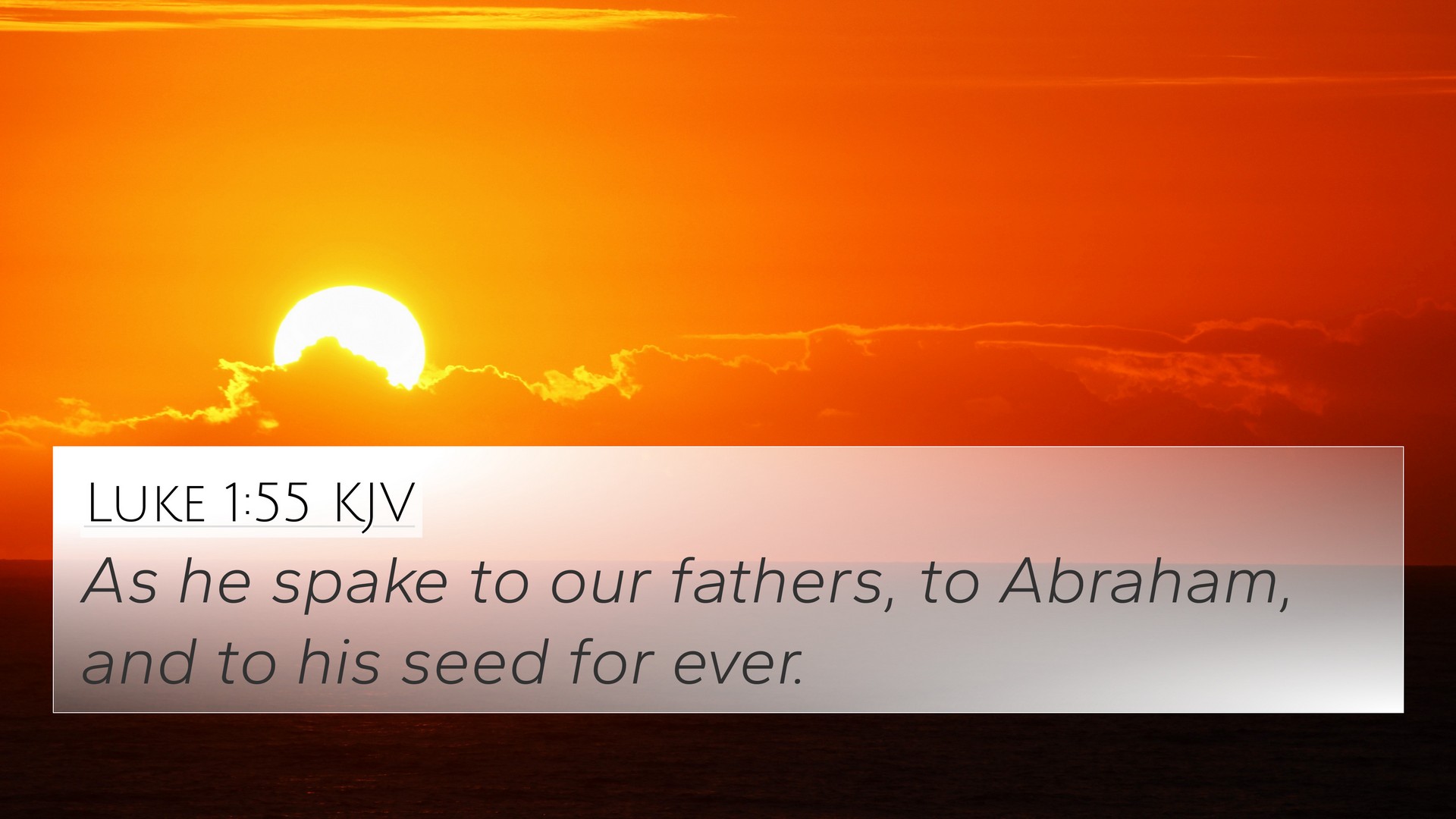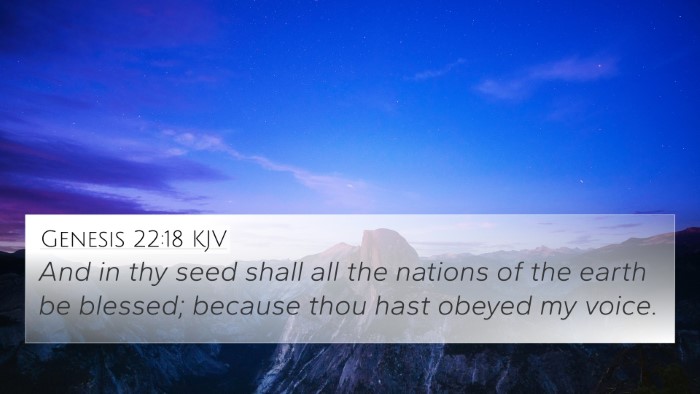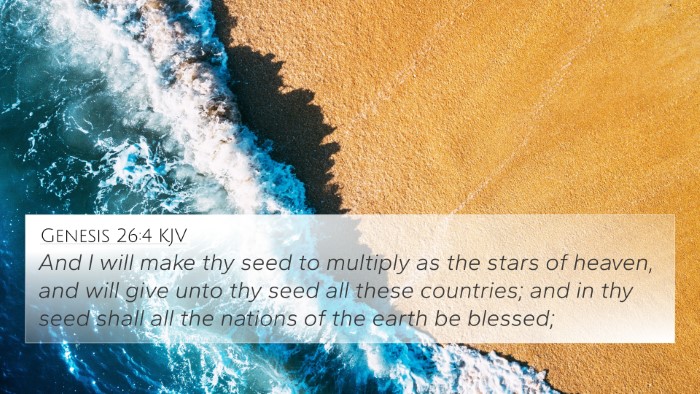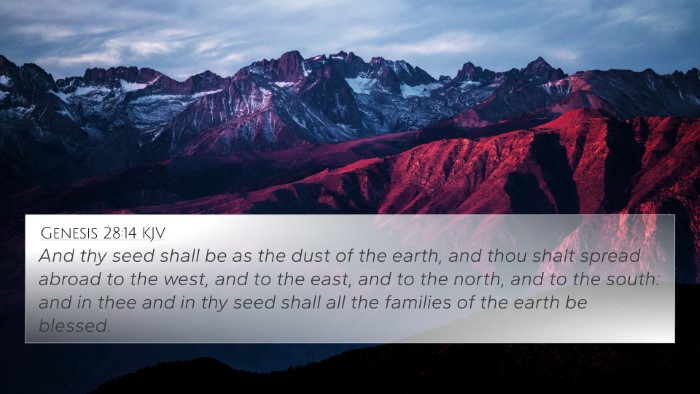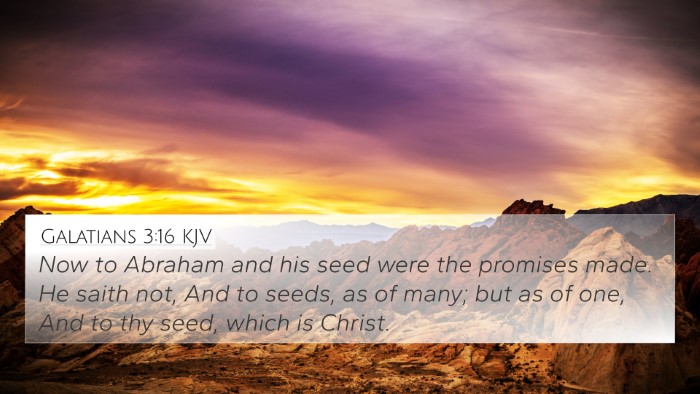Understanding Luke 1:55
Luke 1:55 is part of the Magnificat, a beautiful song of praise spoken by Mary, the mother of Jesus, during her visit to Elizabeth. This verse emphasizes God's faithfulness to His promises made to the ancestors of Israel. In her proclamation, Mary highlights the continuity of God's mercy and His covenant with the people of Israel.
Meaning and Interpretation
The verse reads: "As he spoke to our fathers, to Abraham and to his seed forever." This indicates not only the fulfillment of God's promises to Abraham but also the ongoing blessings that follow through his lineage, leading to the birth of Jesus.
Insights from Commentators
- Matthew Henry: Henry highlights that Mary's reference to God's faithfulness underscores the assurance she finds in God's promises. He suggests that this verse serves as a reminder that God’s covenants are everlasting and that through Mary, the fulfillment of long-awaited prophecies is realized.
- Albert Barnes: Barnes notes that Mary’s song reflects a deep understanding of scripture, particularly the Abrahamic covenant. He emphasizes that this acknowledgment of the patriarchs underlines God’s unchanging nature and His dedication to His people across generations.
- Adam Clarke: Clarke connects the verse to the broader theme of redemption found throughout scripture. He points out how Mary’s declaration not only recalls the promises made to Abraham but also symbolizes the broader messianic hope shared among the people of Israel.
Bible Verse Cross-References
Luke 1:55 connects with several other passages in the Bible that elucidate its themes:
- Genesis 12:2-3 - God's promise to Abraham that he would be the father of a great nation.
- Genesis 17:7 - God establishing His covenant with Abraham and his descendants.
- Galatians 3:16 - Paul explains that the promises were made to Abraham and his seed, identifying Christ as that seed.
- Psalm 105:8-10 - Reflects on the faithfulness of God’s covenant through generations.
- Luke 1:70 - Indicates the fulfillment of God's promises through the prophets.
- Romans 11:1-2 - Assures that God has not rejected His people whom He foreknew, relating to His covenant with Abraham.
- Isaiah 41:8 - Refers to Israel as God's servant, recognizing the lineage through which His plans unfold.
Thematic Connections
Luke 1:55 not only acts as a standalone verse but also forms a critical link in understanding the overarching narrative of scripture. The themes of promise, fulfillment, and divine faithfulness resonate throughout the Bible:
- Continuity of God's Promise: The connection between the Old Testament promise to Abraham and its New Testament fulfillment in Christ.
- God's Mercy: The echo of God's mercy found in Mary's song resonates with the prophetic writings of Jeremiah and Isaiah.
- Covenantal Theology: How the New Covenant in Christ relates back to the promises made to the fathers, creating a linkage that is crucial for understanding soteriology.
Cross-Referencing Biblical Texts
Tools for studying and understanding Luke 1:55 include:
- Utilizing a Bible concordance to find related themes and words.
- Employing a bible cross-reference guide to trace links between the Old and New Testament.
- Incorporating bible reference resources such as commentaries and theological texts.
- Engaging in cross-reference Bible study that delves deeper into verses that relate to the themes found in Luke 1:55.
How to Manually Identify Cross-References
To find cross-references in the Bible, one can:
- Look for keywords in the verse, such as "fathers" and "seed."
- Study the context of surrounding verses and chapters.
- Investigate themes that appear in both Testaments, for example, promises and prophecies related to the Messiah.
Conclusion
Luke 1:55 serves not only as a pivotal verse within the context of the Nativity narrative but is also rich with theological significance, connecting believers to the deep roots of God's faithfulness. Understanding this verse in relation to others enhances our comprehension of God's overarching plan for redemption and the continuity of His promises throughout Biblical history.
